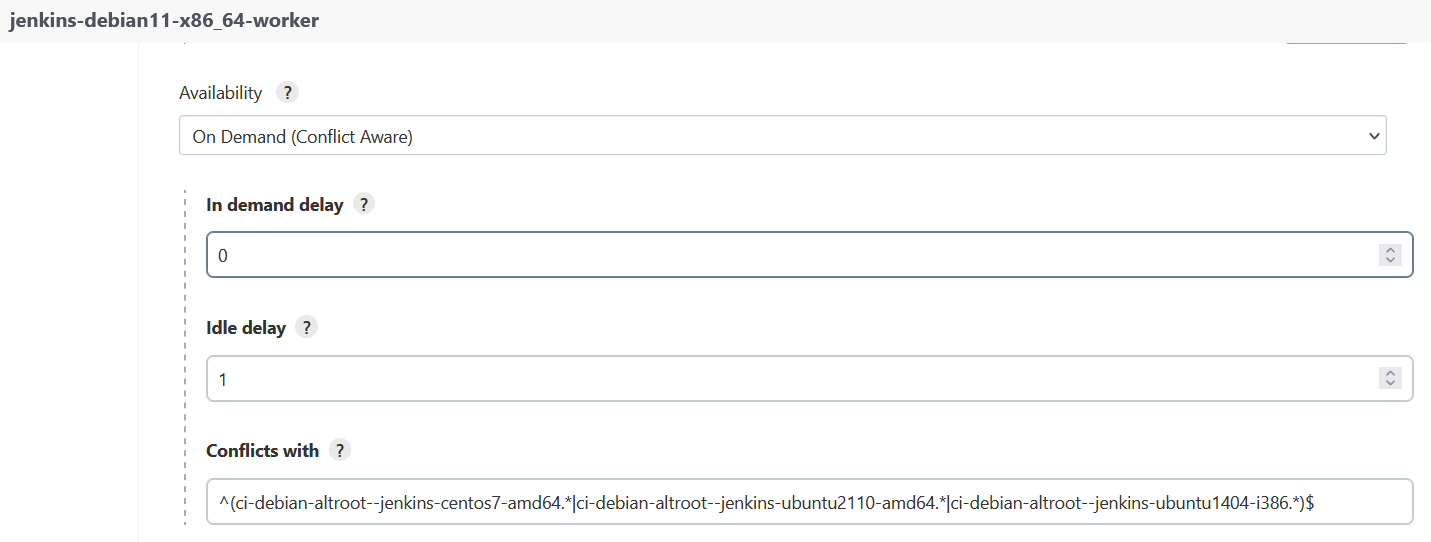This plugin provides an extension of the standard "On Demand" launch and retention strategy for Jenkins build agents such as the SSH Build Agents, limiting the resource stress on a single system hosting several such agents.
Similarly to standard functionality, this plugin supports delayed start of an agent (if some part of a job which it can serve has been queued longer than specified time) and a quiet down time (how long the agent would remain active after it no longer has work, in case new jobs land soon).
It additionally has a parameter to specify a regular expression with other agent names which it "conflicts" with -- this allows to only run one agent at a time, allowing a resource-constrained host system to fulfill several scenarios in a practical build job eventually, e.g. building and testing platform-dependent projects in numerous environments and architectures with QEMU, as chroots, containers or complete virtual machines.
Overall this approach can be faster than running such builds in parallel (if CPU or I/O contention are the bottleneck), or more reliable (if RAM availability is constrained, so builds can fail due to "Out of memory" issues). It also allows to scale the coverage of emulated multiplatform build systems, by defining more environments and throwing time at it with effectively sequential build processing. Sometimes it is worth it ;)
To make use of this plugin, go to your persistent agent configuration UI under $JENKINS_URL/computer/agentname/configure, to Availability section. There select "On Demand (Conflict Aware)" option and set up the fields:
-
"In demand delay" can range from 0 (minutes) upwards; you can use it to try prioritizing one build environment over others.
-
Keep "Idle delay" at a minimal value (1 minute) to quickly hand the host over to serving another build environment.
-
"Conflicts with" specifies a regular expression to match Jenkins names of other agents that can run on the same host.
It would be helpful to name agents defined on the each host with a unique common pattern, so you would cover all "neighbors" with one regular expression which you can copy around the co-located agent configurations, but yet not "conflict" with any Jenkins agents co-located on another host.
An alternative solution can be to group guest systems for Jenkins agents based on expected use-cases and selected in a job by labels. For example, emulated QEMU runs can be a one-off test taking days to complete, so "native" build environments that test every commit quickly have a dedicated naming pattern to only "conflict each other", while the emulated QEMU agents would conflict everything on this host, and so would only start if the host is not busy.
Report issues and enhancements in the Jenkins issue tracker.
Refer to our contribution guidelines
Licensed under MIT, see LICENSE





